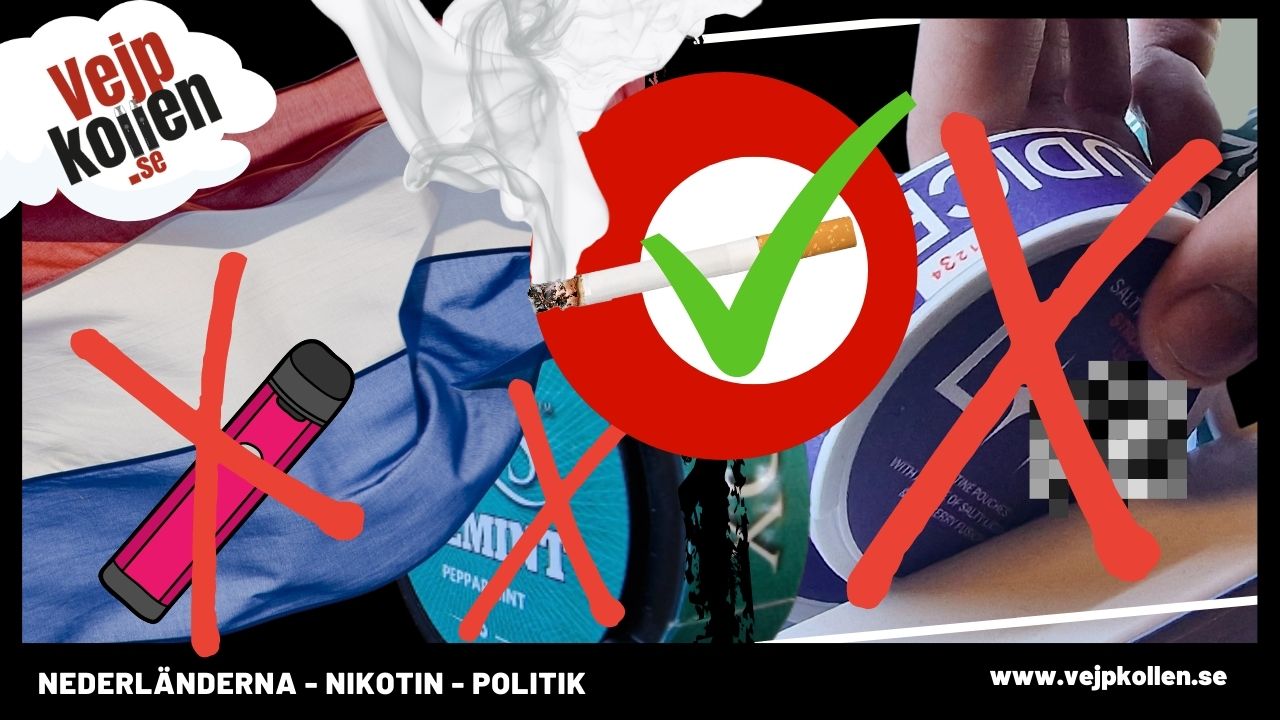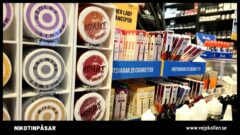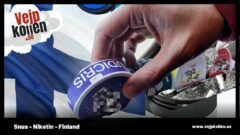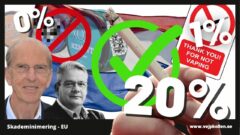It is now clear that the Netherlands will ban the future sale of nicotine pouches in the country. This follows the government's decision to implement a legislative change that moves nicotine pouches from food legislation to regulation under the Tobacco Act.
As Vejpkollen previously reported, the Dutch government has for a long time pursued a hard line against all alternative nicotine products, except non-prescription medicines. Nicotine pouches, which are currently regulated as food, must not contain more nicotine than an aubergine (0.035 milligrams per pouch). Regular nicotine pouches usually have a nicotine strength of 8-10 mg/pouch. However, medicated pouches may contain a maximum of 4 mg.
"They want young people to become addicted"
According to the Dutch Minister of Health Maarten van Ooijen nicotine pouches, if not regulated even more tightly, could become a new way for tobacco companies to attract their customers in the Netherlands. And that tobacco companies
"They want young people to become addicted to nicotine. I am glad that we are now regulating these products in the same way as cigarettes. " the minister told Reuters.
Controversial harm minimisation
The debate on nicotine and smoking has become infected in recent years, especially since the popularity of smokeless nicotine products. Most evidence suggests that nicotine is not the root cause to the harms caused by smoking. A growing number of people researchers and health professionals believes that the availability of smoke-free nicotine products can play a crucial role, not only for smokers, but for public health in general.
Fierce competition for smokers
At the same time, competition in the broader nicotine market has intensified. Alternative nicotine products have been shown to be effective aids for smokers who want to quit, although the degree may vary between products. In clinical studies, e-cigarettes, for example, have been shown to be twice as effective compared to OTC nicotine medicines for smoking cessation. As more potent, and perhaps more importantly, consumer-friendly nicotine products become more prevalent in the market, the demand for milder nicotine products, such as weaker nicotine pouches, patches, gum, tablets and sprays, is decreasing. Pharmaceutical companies have in recent years sponsored lobbying organisations which is pushing for tougher legislation on nicotine.
Don't want to favour tobacco companies
Also several major tobacco companies has recently declared that they want to replace cigarettes as the main source of income towards smoke-free products such as snus, nicotine pouches and e-cigarettes. This is also the case in the Netherlands. However, according to Minister Maarten van Ooijen this is not desirable.
"Nicotine is still addictive and harmful. " he tells Reuters.
The official position is that only nicotine medicines should be used to support smoking cessation.
"More ideology than science"
The Dutch government has been criticised in the past for its heavy-handed regulation of smokeless nicotine products, not least when the government decided that e-liquid can only contain flavours that are bitter and off-putting. In practice, this means that more 99 per cent of the range in Dutch vejpshoppes will become illegal on 1 August 2023. According to an survey that the organisation Acvoda published in 2021, the flavour ban is likely to result in many people who vejpar go back to smoking to get their nicotine.
"The reasoning behind the Dutch government's proposal to completely ban nicotine pouches is based on the same illogical approach as the flavour ban. This is a matter of ideology and has no basis in modern research, whether it is about nicotine or smoking cessation," wrote the European activist organisation. ETHRA in a press release.





One wonders what drugs the Dutch Minister of Health is on😄.